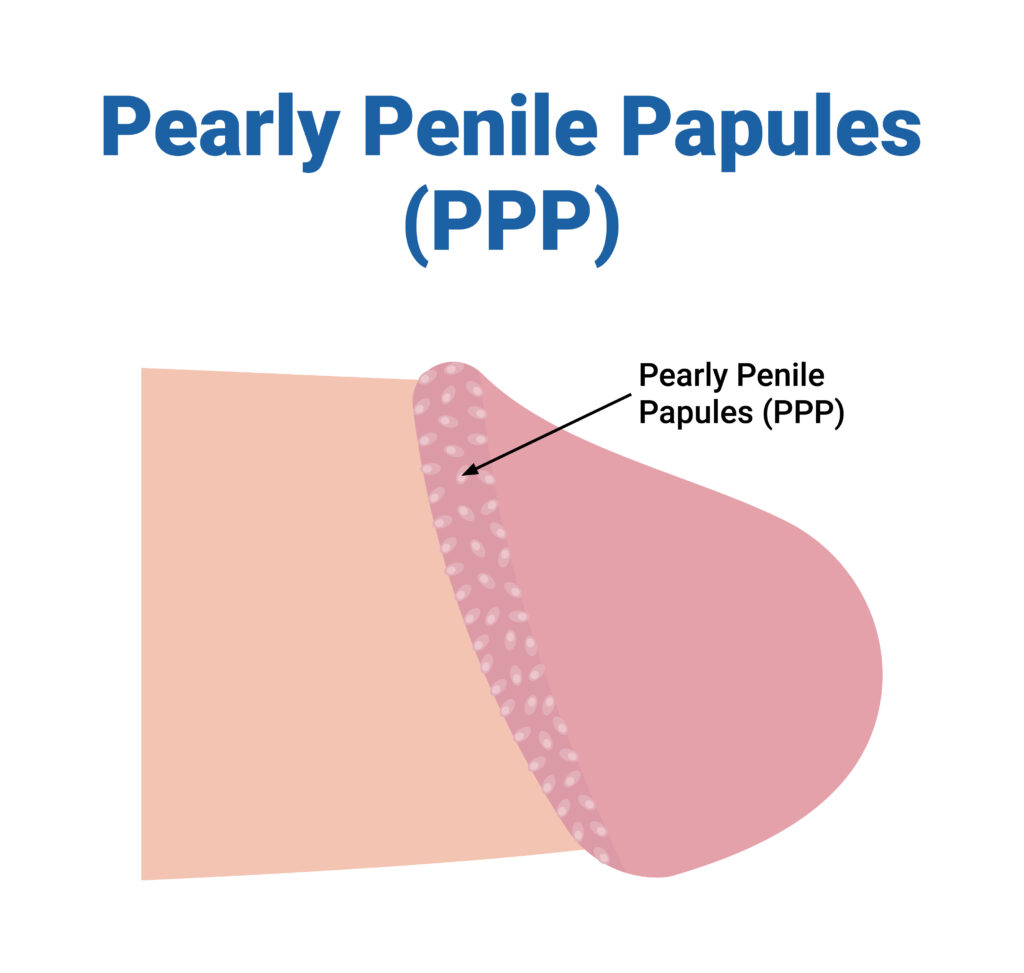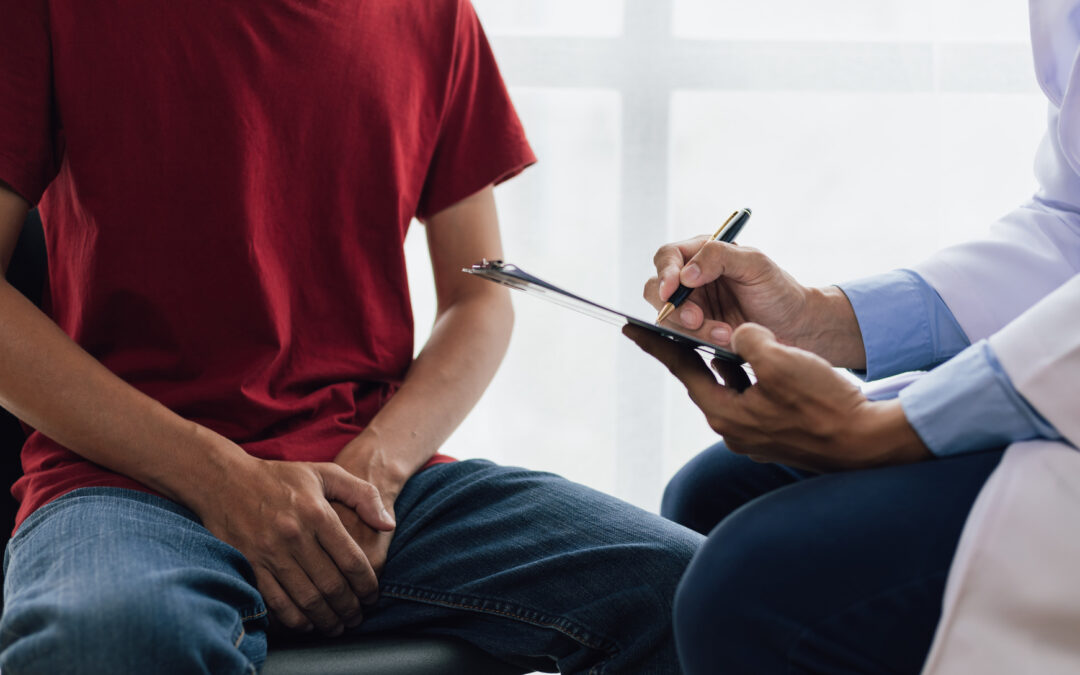The human body is a marvel, intricate and complex, working continuously to maintain a balance of health and well-being. However, there are moments when you may notice changes or irregularities, especially in sensitive areas such as the genitals. One such concern that often causes alarm is the discovery of lumps or bumps. But before panicking, it’s essential to gain a deeper understanding and to differentiate between benign conditions and those that might require medical attention.
One benign condition you might encounter is Pearly Penile Papules (PPP). To learn more about PPP and other similar conditions, read on. Recognizing and understanding these situations can alleviate fears and give you the knowledge to make informed decisions.
Understanding The Various Causes
Just as pimples can sprout on the face, lumps and bumps can appear in the genital area for various reasons. Some are harmless, while others require attention.
- Ingrown Hairs: You might notice small, pimple-like bumps after shaving. These are typically just hairs growing back into the skin.
- Cysts: Small fluid-filled lumps, cysts can appear anywhere on the body, including the genital area. They’re usually painless unless infected.
- STDs: Some sexually transmitted diseases, such as genital herpes or human papillomavirus (HPV), can cause bumps.
- Pearly Penile Papules: These are small, white bumps that appear on the ridge of the glans of the penis. They’re non-cancerous and don’t pose any health risks.
Dispelling Common Myths
In a world filled with information, it’s not uncommon for misconceptions and myths to arise. It’s important to distinguish between fact and fiction regarding genital lumps and bumps. Here are some key truths to be aware of:
- Not All Bumps Are Sexually Transmitted Infections (STIs): Getting any bumps or lumps checked out by a medical professional is crucial. However, it’s important to note that not every lump found in the genital area is an STI. As mentioned earlier, many conditions, such as Pearly Penile Papules (PPP) and Fordyce spots, are benign and do not pose any risks to sexual partners.
- Treatment Isn’t Always Necessary: In the case of benign conditions like PPP, treatment is often unnecessary and primarily cosmetic. While some individuals may feel self-conscious or uncomfortable with the appearance of these bumps, they do not require medical intervention. It’s essential to consult with a healthcare professional to determine the appropriate course of action based on the specific characteristics of the bump or lump.
When To Seek Medical Advice: Prioritizing Your Health
Taking care of your health should always be a top priority. It’s essential to consult a healthcare professional if you notice any of the following signs:
- Persistent or Increasing Pain: If you experience persistent or increasing pain associated with a genital bump or lump, it’s crucial to seek medical advice. Pain can be an indicator of underlying issues that require further evaluation and treatment.
- Changes in Appearance or Size: A healthcare professional should promptly address any noticeable changes in the appearance or size of a bump. This could include changes in color, texture, or overall shape. It’s important to have a medical expert assess these changes to determine their cause and provide appropriate guidance.
- Signs of Infection: If you observe any signs of infection, such as pus, redness, warmth, or tenderness around the bump or lump, it is important to seek medical advice. Infections can have various causes and may require medical treatment to prevent complications and promote healing.
- Accompanying Symptoms: Pay attention to any additional symptoms accompanying the genital bump or lump. Suppose you experience symptoms like fever, unexplained weight loss, fatigue, or any other concerning signs. In that case, it is essential to consult a healthcare professional. These symptoms could indicate a more systemic issue that requires medical attention.
By recognizing these signs and knowing when to seek medical advice, you can ensure timely evaluation and appropriate management of genital lumps and bumps. Always trust your instincts and prioritize your health by consulting a healthcare professional for proper diagnosis and treatment.

Guidelines For Self-Examination
Routine self-examination helps with early detection and peace of mind. Here’s how you can conduct a thorough check:
- Ensure you’re in a well-lit room and have a hand mirror if needed.
- Examine all areas, even those that might seem hard to view.
- Feel with your fingers, checking for any irregularities or growths.
Remember, consistency is key. Familiarize yourself with your body so you’re aware of any changes.
Managing Anxiety And Fear
Discovering a lump or bump can be unnerving, but remember, you’re not alone. Here’s how to cope:
- Stay Informed: Knowledge is power. The more you know about the possible causes and treatments, the less you’ll worry.
- Talk to Someone: Sharing your concerns with a close friend or a counselor can provide comfort.
- Stay Active: Physical activity can reduce anxiety and improve your mood.
Staying Proactive About Genital Health
Maintaining your genital health goes beyond just regular self-examination. Here are some steps to integrate into your routine:
- Practice safe sex. Always use protection.
- Keep the area clean and dry. Good hygiene can prevent many issues.
- If shaving, ensure you use a clean blade and shave toward hair growth.
In addition to these steps, getting regularly tested for STDs is crucial. Services like Priority STD make it easy and discreet to get tested, ensuring that you stay informed about your sexual health status. Early detection and treatment of STDs can prevent serious health issues, so consider incorporating STD testing into your health routine as a priority.
Conclusion
Your body is bound to go through changes. While it’s natural to feel alarmed when discovering genital lumps or bumps, remember that not all are cause for concern. By staying informed and proactive about your health, you can navigate these moments with confidence and clarity. Remember, when in doubt, always seek medical advice. Knowledge, self-awareness, and timely action are your best allies.









